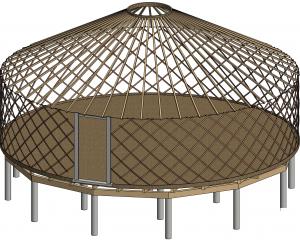The area around the pools is already renowned for its red-flowering mistletoe (Peraxilla tetrapetala) - a plant with an apocryphal history to do with Greek mythology and kissing.
But chairman of the Forest and Bird Society's Central Otago Lakes branch Mark Ayre believes there is room at the Blue Pools for even more.
Mr Ayre told the Otago Daily Times yesterday branch members would like Department of Conservation approval to pick up mistletoe seeds that fall to the ground and stick them on the branches of young beech tree seedlings sprouting around the car park.
The semi-parasitic native mistletoe generally grows high up in older trees but Mr Ayre believes they could be established on the young trees lower to the ground.
Mistletoe seeds come with a ready-made coating of glue and Forest and Bird ambassador Dr Gerry McSweeney has successfully seeded native mistletoe on young trees around his lodge on Arthurs Pass.
His society branch's motives in wanting to spread mistletoe have nothing to do with kissing. Mistletoe flowers produce nectar on which many native birds, such as tui and bellbirds, feed.
Mr Ayre said spreading mistletoe in an area where new forest is becoming established ''brings the balance of the ecology back''.
''Part of the problem is they [mistletoe] have got nice flowers and that's what possums like to eat and they just shred them to pieces.
''Possums go wild on them.''
Mr Ayre said forest and bird needed Doc approval because the Blue Pools are in the Mount Aspiring National Park.
Mr Ayre said Forest and Bird was turned down when it submitted a similar proposal a few years ago, but would try again.
''All the tourists go through the Haast Pass and the majority of them stop at the Blue Pools, so it's an ideal opportunity to increase the biodiversity, that increases the birds so that makes the experience for the people who stop at the Blue Pools even better.''
A spokeswoman for Doc in Wanaka yesterday said for the mistletoe-seeding project to be considered, possum numbers in the region needed to be lower than monitoring was currently indicating.
She said mistletoe bloomed in the region until January.











